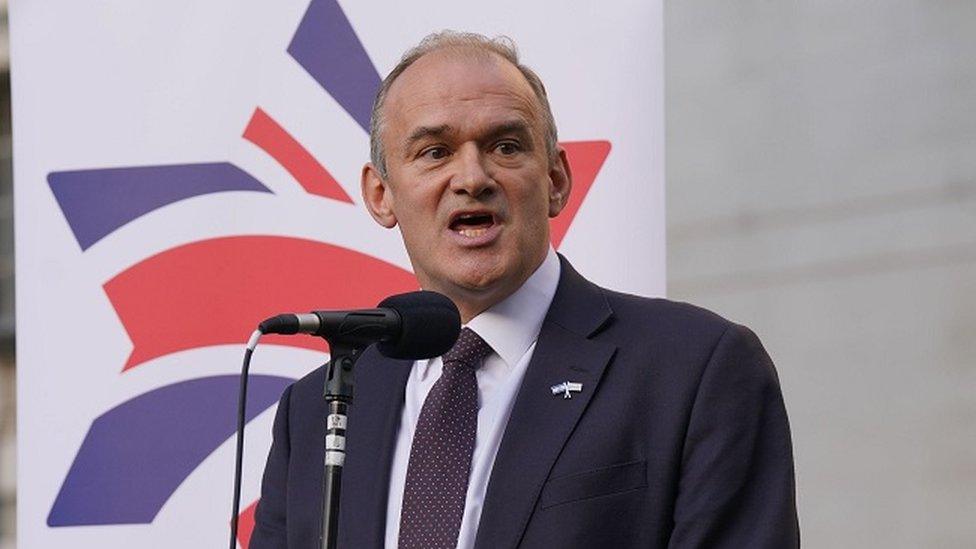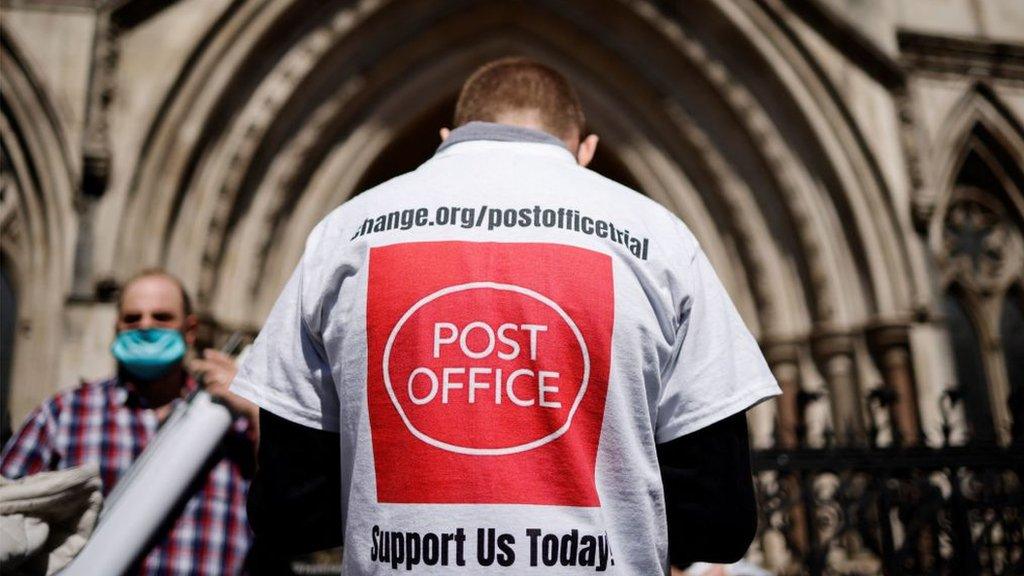Tony Blair was warned Horizon IT system could be flawed, documents show
- Published
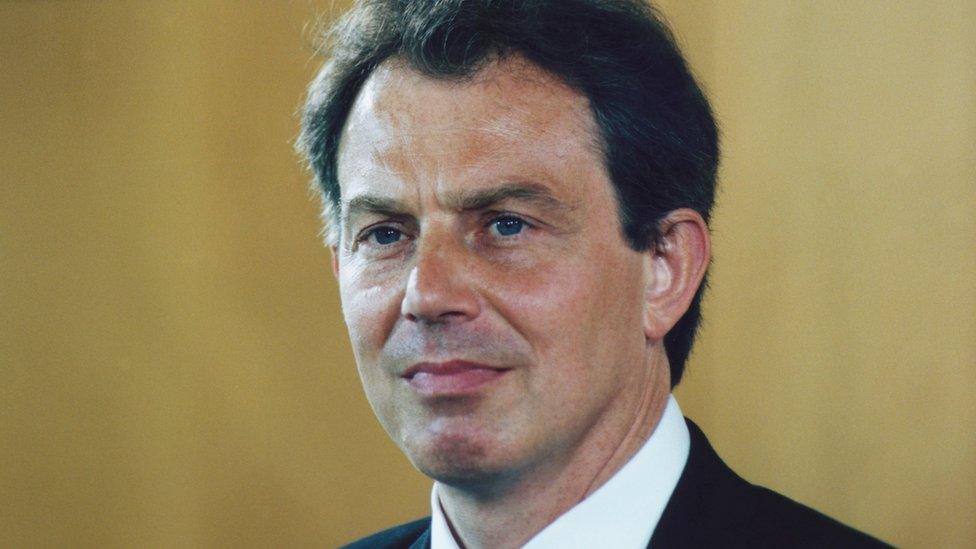
Sir Tony Blair was Labour prime minister between 1997 and 2007
Sir Tony Blair was warned the Horizon IT system at the centre of the Post Office scandal could be flawed before it was rolled out, a document shows.
A handwritten note from the then-Labour PM, published by the public inquiry on Friday, external, suggests he raised concerns after being warned the system was "possibly unreliable".
But he said he gave it the go-ahead after being reassured by others.
Among them was Peter Mandelson, who was then his trade and industry secretary.
There was no indication at this stage that the Horizon software would lead to wrongful accusations of theft but there were concerns about its reliability and ballooning cost.
In a letter dated 10 December 1998, external, Lord Mandelson said he believed the "only sensible choice" was to proceed with Horizon.
He warned that cancelling the contract would cause "political fallout" from post office closures and damage relations with Fujitsu, which he described as a major investor in the UK.
The letter, and the submission to Sir Tony, were both previously shown in hearings at the inquiry, which was launched in 2021, but have now been published in full.
In 1998 Horizon was being developed by a firm called ICL, owned by Fujitsu, as a way of paying welfare benefits through Post Office counters using a swipe card.
Ultimately this element of the project was dropped and the system was rolled out in 1999 for tasks like accounting and stocktaking instead.
More than 900 workers were prosecuted after the faulty software wrongly made it look like money was missing.
The Horizon project, which was launched under John Major's Conservative government, was running more than two years behind schedule by 1998.
The project was referred up to Sir Tony to decide if it should continue.
'Hugely expensive'
A submission sent to the then-prime minister on 9 December 1998 by a special adviser at Downing Street, Geoff Mulgan, described the system as "increasingly flawed".
Mr Mulgan warned that "in the long-run" it would "prove unsatisfactory" and described it as "hugely expensive, inflexible, inappropriate and possibly unreliable".
Mr Blair jotted a handwritten note on the document that asked for a "clear view" on its reliability.
On 14 December 1998, his private secretary Sir Jeremy Heywood wrote to Mr Mulgan to say that the prime minister's "clear preference would be to avoid cancelling the project".
Witness statements given by other former Labour ministers, including Alistair Darling and Stephen Byers, previously set out how the government came up with a number of options to save the ailing scheme.
In his own witness statement, given to the inquiry in 2022, Sir Tony pointed to a letter from Lord Mandelson written on 10 December 1998 as an example of the reassurance he had received.
In the letter, Lord Mandelson said "the basic development work has been thoroughly evaluated by independent experts who have pronounced it viable, robust and of a design which should accommodate future technological developments".
'Naturally concerned'
No former minister has said in their evidence to the inquiry that they knew of specific problems which led to sub-postmasters being wrongly accused of theft.
Lord Mandelson's letter also warned that if the government cancelled the contract "our relations with Fujitsu, a major inward investor into the UK over the past decade, would be severely damaged, as would the credibility" of Private Finance Initiatives or PFIs - then a new method of funding major projects.
In September 1998, Fujitsu announced it was closing a semiconductor plant in Sir Tony's Sedgefield constituency in County Durham, with the loss of 600 jobs.
In his witness statement, Sir Tony said he was "naturally concerned" about the impact of the closure and it was mentioned by him in passing in a letter to the chairman of Fujitsu. However, he said he did not recall this being relevant to the matters being considered by the inquiry.
Lord Mandelson's letter, which was sent to the then Chief Secretary to the Treasury Stephen Byers and copied to the prime minister, also reflected concerns the system was vital for generating the footfall needed to keep post offices open.
He wrote that "the damage to the confidence of sub-postmasters and the knock-on effect of network closures", which he said would come from cancelling Horizon, "will produce political fallout, no matter how carefully we try to handle it".
Lord Mandelson's office has been approached for comment.
A spokesperson for Sir Tony said: "As the documents show, and make completely clear, Mr Blair took the issue very seriously. His response to the Mulgan note, and in other interactions, was to raise the issue of the viability and reliability of the end project as this was his overarching concern. He subsequently received these reassurances.
"It is now clear that the Horizon product was seriously flawed, leading to tragic and completely unacceptable consequences, and he has deep sympathy with all those affected."
Related topics
- Published12 January 2024
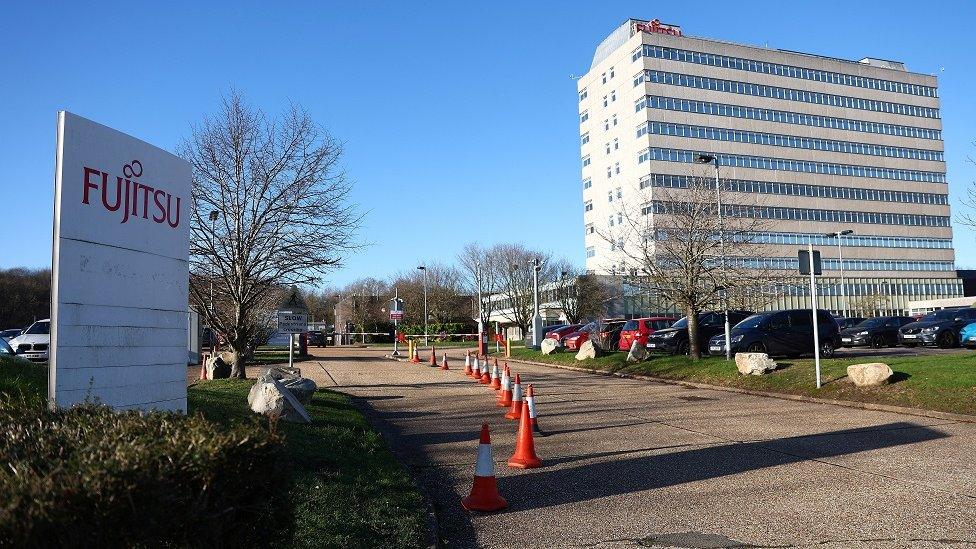
- Published11 January 2024
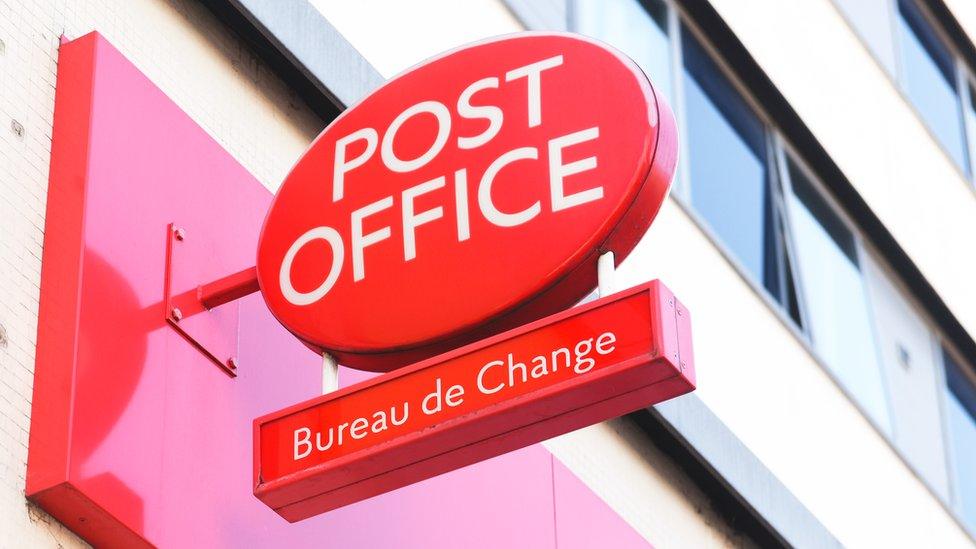
- Published10 January 2024
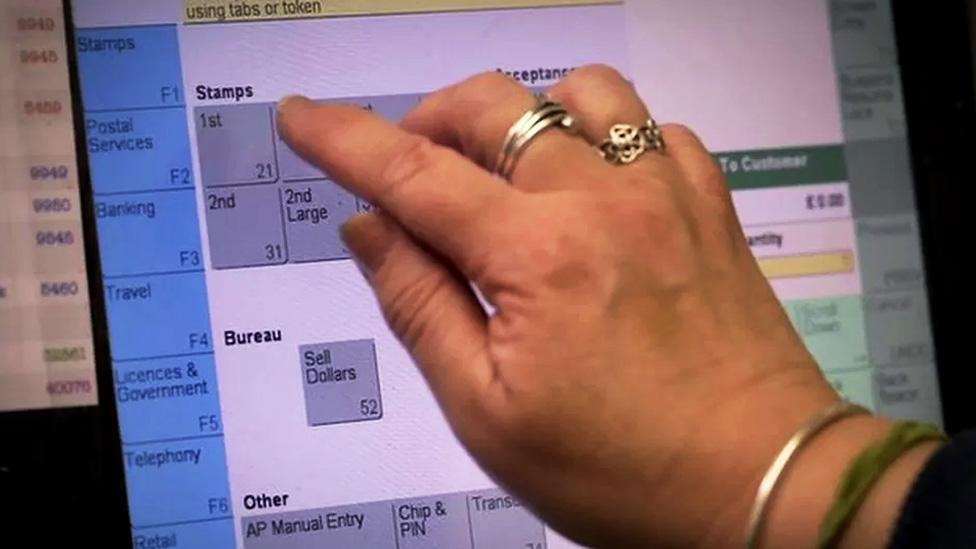
- Published10 January 2024
